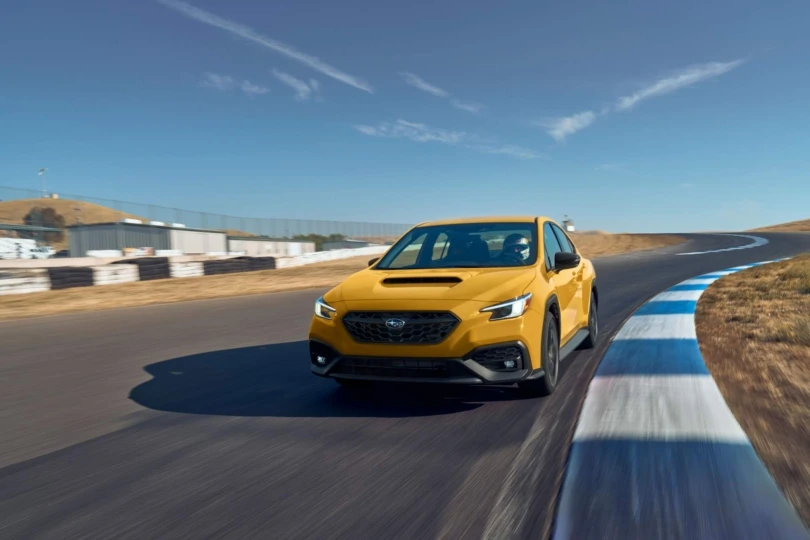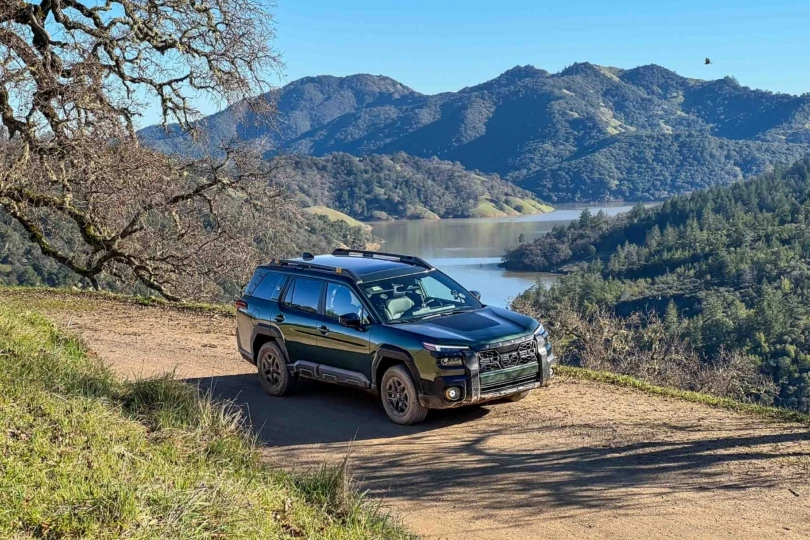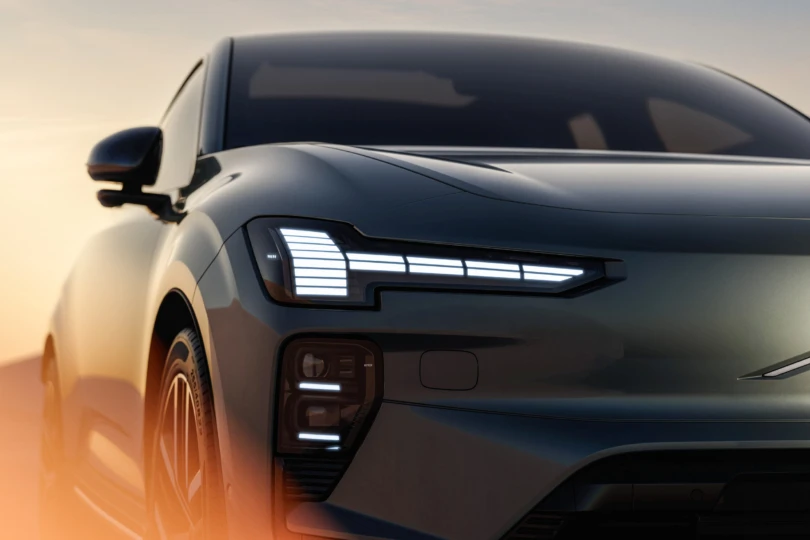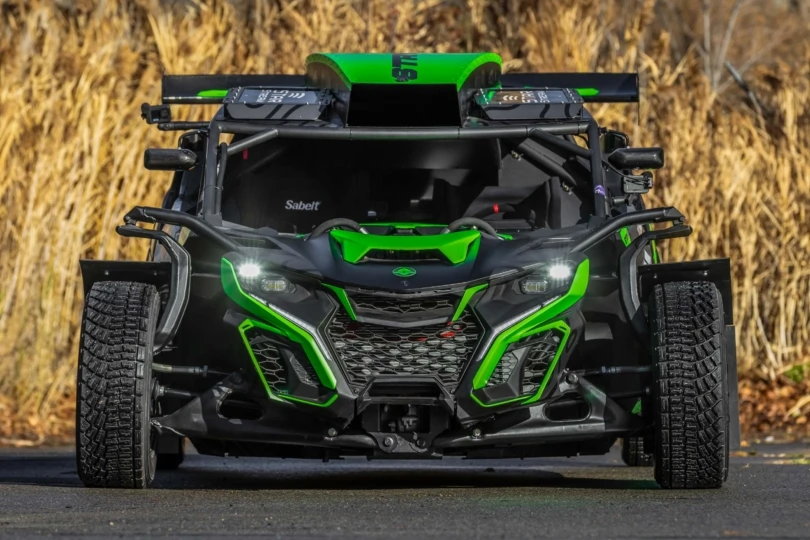Hyundai is the latest auto manufacturer to hop into the lucrative truck market, but it hasn’t built a typical truck. It calls the 2022 Santa Cruz a ‘Sport Adventure Vehicle.’
The Hyundai Santa Cruz is a vehicle for those of us who need a car but want some of the utility a truck has to offer. The Santa Cruz is also a better adventure companion than you might think, and a way better commuter than any big heavy truck on the market.
In the world of automobiles, everything is growing. Compact cars now stretch to within an inch of midsize cars from 25 years ago. Many of today’s small SUVs have three rows of seating. And trucks? Well, the popular Ford F-150 Super Crew body with the shortest available 5.5-foot bed is 19.3 feet long. That’s a far cry from the early ’90s regular cabs running around with a 6.75-foot bed and nearly a yard shorter footprint.
But now we have the 2022 Hyundai Santa Cruz — a pickup with four doors, five seats, and a 4.3-foot-long bed — which measures 16.3 feet from bow to stern.
In short: The 2022 Hyundai Santa Cruz is a modern, more compact version of an El Camino that gets better gas mileage than popular pickups of today. And its size allows you to easily parallel park it in the city. Its short bed means it isn’t much use at a job site, but it might just be the perfect outdoor gear-hauler.
2022 Hyundai Santa Cruz Review: Truck or Not?

Certainly, the 2022 Hyundai Santa Cruz is smaller than most modern trucks. It’s a vehicle that, depending on the trim, includes a tow-hitch, a tailgate, and a bed filled with tie-down straps. And yet it fits in a typical city parallel parking spot.
In today’s world, that’s novel. And welcome. But is it a truck? Hyundai says no. The company prefers the term “Sport Adventure Vehicle.”
Submitted as supporting evidence, consider the following: Hyundai used the N3 platform to build the Santa Cruz. That’s the same structure as the Hyundai Tucson, Santa Fe, Sonata, and several Kia models. Indeed, forward of the bed, it looks very much like the Tucson, inside and out. And it’s certainly not the traditional body-on-frame structure most manufacturers use as the bones of their trucks.
Yet, check out these specs. Depending on trim, the Santa Cruz can tow up to 5,000 pounds. Its maximum payload is as much as 1,753 pounds. And, with a couple of minor adjustments and tie-down straps to help, you can lay 4 x 8-foot sheets of plywood flat in the bed.
None of the above will convince diesel-powered, one-ton owners to trade in, but it might raise a few eyebrows for folks on the recreational side of things.

Then why does Hyundai call it a “Sport Adventure Vehicle” and not a “truck”?
Because it’s not a truck — at least not a typical one. Despite the figures and the shape, the intended purpose of the Santa Cruz is noticeably different than we’re used to.
Think of it like a Tucson with a separated cargo area, a mudroom of sorts. Hyundai used sheet-molded compound plastic to make the bed. Though not as strong as aluminum or steel, this material is well-suited for a pile of wet and dirty items, like beach towels or mountain bikes.

You can open the tailgate with the push of a button on the key fob, which will happen slowly and softly as a gas strut helps smooth out the operation. And mounted on top is a lockable roller tonneau cover to both hide and secure your gear.

Furthermore, just in front of the tailgate is an under-bed storage area, similar to what Honda offers on the Ridgeline. And, just like the Honda, the Santa Cruz under-bed storage area comes with a drain plug, making it easy to clean. Or, instead, fill it with ice for a built-in cooler while you tailgate or camp.
Behind the wheels on either side of the bed are small glovebox-like storage bins, and the one on the passenger side includes an A/C plug. There are also lights and sliding tie-downs to help hold everything in place.
Peppy and Polished

To power this amalgamation of vehicle types, Hyundai offers two 2.5L four-cylinder engines, one naturally aspirated, the other turbocharged. SE and SEL trimmed models get the former and make do with 191 horsepower and 181 pound-feet of torque that ties to an eight-speed automatic transmission and sends power on to either the front or all four wheels.
SEL Premium and my Limited test car get the turbo and enjoy 281 horsepower and 311 pound-feet of torque as a result. With the added power, you get an 8-speed dual-clutch transmission instead of an automatic but can still choose to send the power to the front or both axles. And both engines return remarkably similar fuel economy — 21 mpg city, 26-27 mpg highway, 23 mpg combined — except the heavier Limited model, which slurps down 19 city, 27 highway, and 22 combined.
From behind the wheel, you feel plenty of pep. The Limited all-wheel-drive Santa Cruz tips the scales at 4,123 pounds. according to Hyundai, meaning each horsepower lugs around 14.7 pounds. That’s in the ballpark of a Volkswagen GTI. And thanks to the all-wheel drive and an eight-speed, dual-clutch box, you have plenty of traction and little downtime between gears.
Moreover, it rides down the road and handles corners just like a Tucson. Because, well, it basically is one.
Clearly, this isn’t your default canyon carver. At the same time, the Santa Cruz is fully competent. A well-balanced spring and shock setup allowed for a pleasant enough ride down a lumpy road as well as less roll when I chucked it into a corner than any truck I’ve recently driven. And that remains true with a load in the back or a trailer behind, as the Santa Cruz includes a load-leveling rear suspension.

Inside, you basically have a Tucson doppelganger, which is a compliment. The Limited model includes two 10.25-inch screens: one for the instrument cluster, the other for the center console. You also get heated and ventilated seats, a heated steering wheel, and other similar luxuries and space.
At least for the front seats. The realities of a bed behind the second row pinches legroom a bit, and folks back there are not church-pew upright, but close. Truthfully, the second row is better suited for children or shorter trips. On the other hand, if you don’t need to cart around passengers, you can also fold the seat bottoms up to reveal additional storage bin space.
2022 Hyundai Santa Cruz: Ditching Truck Tradition for the Better
This is not a truck, at least not in the traditional North American sense. But it’s a vehicle that dips its toes into many different categories.
It has a midsize sedan footprint. It drives like a car-based compact SUV and, in doing so, provides similar levels of space, comfort, and fuel economy. Yet it will still raise its hand to help with a lot of residential-level pickup truck tasks.
And frankly, it’s nice to finally see something smaller enter the market for a change. Bigger isn’t always more. Check out all the specs on the 2022 Hyundai Santa Cruz here.






